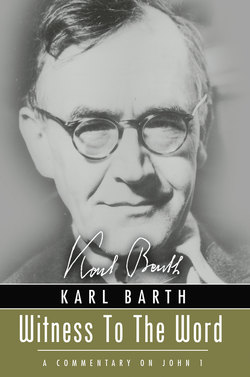Отрывок из книги
WITNESS TO THE WORD
A Commentary on John 1
.....
Historically and genetically it may be noted that John’s vocabulary or conceptual material is in no way original. In the Hellenistic world phōs is often the proper name of Soter, the saving deity, or even of primal man (thought of as deliverer). The two words zōē and phōs are often combined in the same way. Thus Poimandres unites them as the two things that denote the origin of humanity and the goal that is to be reached by cleansing. In Mandean works we find the same dependence of light on life as here; we read of the light that rests on the mouth of the first life, or of the light that was from life, with reversals of the relationship as well. God as well as life, e.g., Serapis,32 is also called the “light of men” in the same phrase as that of the present verse. Undoubtedly, then, there are links with religious history, and I can appeal to the plain content of the verse itself, especially the second half, when I say that all this is correct. It seems to me to be hardly fair that the readers of such a wide-ranging commentary as that of Zahn hear nothing at all about such things. Yet these connections tell us nothing about the meaning that the terms zōē and phōs have here. We shall see later, however, that it is by no means a waste of time to take note of them.
Let us begin by considering that a new and third train of thought, which is concluded in v. 5, begins in v. 4. The life that was in the Logos is the light of man, and it shines in the darkness, but the darkness does not cease to be darkness. This is the point. By life, provisionally and very generally, redemption is meant, and by light revelation. But we shall have to prove the correctness of our interpretation against a whole flock of exegetes, many of whom have to be taken very seriously. According to H. J. Holtzmann (Hand-Commentar, pp. 34f.) v. 4 is the answer to a question supposedly implied in v. 3: How can all things have come into being from the Logos, how can there have been a principle of creation? The answer is: Because according to his depicted relation to God his content was life, a being that brings forth other being. Thus exposition of v. 4b has to run as follows: The power of life that streams forth from him proves especially to be a means of illumination vis-à-vis the human world. Many have previously followed this track, seeing in zōē the general life of creation (with a reference back to v. 3), and in he zōē the life that illumines humanity. “Le Logos était [comme dit Schaff] la vie de chaque vie.”33 Thus Augustine understands by “life” the existence of all things in the ideas, or in the idea, insofar as they have true existence in the idea. Apart from the idea they are bodies; in the idea, en autō̧, they are life. But human beings are rational souls as they perceive the idea, i.e., as they receive the Word, as they are illumined by this true life of things.34 “Augustinus more suo nimium platonicus ad ideas rapitur.” comments Calvin, and he finds the thought of the church father “a mente evangelistae longe remotum.” [See Eng. tr. p. 10: “Augustine, who is in his way an extreme Platonist, is addicted to the concept of the idea, … far … from the thought of the Evangelist.”] But Calvin’s own exposition, which does not platonize, or perhaps platonizes in its own way, moves remarkably along the very same lines. Calvin finds in zōē the continua inspiratio that takes place by the Word. By this means God, having made the world, constantly sustains it. In hē zōē, however, Calvin finds the life of the spirit which distinguishes humanity from the beasts. In this—undoubtedly a deeper and truer thought—the Word of God that is the basis of all things is reflected as in a mirror.35 Also along the same lines, but more crudely in the spirit of the nineteenth century, A. Tholuck explains that God as the self-revealing God is the source of natural life; in humanity this natural life appears at its highest potency as consciousness, as direct perception.36 Meyer, too, writes that the reference is to the general life source of the world that was made by the Logos, who as such could not be inactive, at least in relation to humanity, but who necessarily had to show himself to be at work in it according to its rational nature.37 In a sermon on this text Schleiermacher used the same thought to make the point that the individual human soul does not see only what is dead around it but also sees life, which leads it to a knowledge of God as the author of the world, so that earthly life, the life that encounters us in the world, is in fact the light of men.38 And finally, again in a sermon, and within the framework of this view coming closest to the truth, Luther distinctively claims that “natural life is a part of eternal life and only a beginning, but it comes to an end through death, because it does not recognize him from whom it comes; the same sin cuts it off, so that it has to die eternally. Again, those who believe and recognize him from whom they have life never die, but natural life is strengthened to eternal life, so that it never tastes of death.”39
.....
